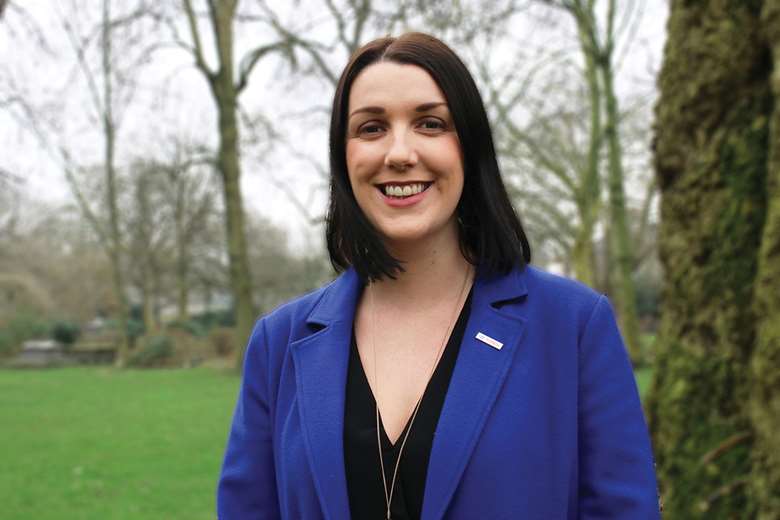Demonstrate trustworthiness
Lindsay Marsden
Wednesday, January 2, 2019
Public trust in charities is at its lowest point in a decade, but there are some key concepts that can help a charity to communicate its trustworthiness to stakeholders and the wider community alike.

Earlier this year the Charity Commission published its Trust in Charities report for 2018. The focus of the report was around how public trust of charities is at its lowest level in 10 years - although charities still score higher than private companies, banks and politicians. However, what was most interesting about the report were the conversations it provoked on trustworthiness. What does trust mean for the charity sector and what can charities do to demonstrate their trustworthiness?
Trust is critical for all areas of a charity's work but especially for fundraising. Fundraising at its heart is about building trust and relationships - trust that we spend funding as we describe, that we are able to meet goals and targets, and that the work we do benefits the communities we serve. This trust is built slowly over months and years but can be lost in an instant. Here at UK Youth we work incredibly hard to measure our impact accurately, report on it truthfully and identify areas of improvement. Here are five key concepts that are crucial for us when building trust with internal teams, external stakeholders, and the public at large.
1. Bold leadership is key. As sector leaders it is crucial that we speak out, challenge misconceptions and provide people with accurate data. We must also inspire and encourage our teams and beneficiaries to do the same. Every charity has their challenges and the UK Youth network is no different. Over the last 10 years, youth services have been decimated - £737m of funding has been cut across England since 2010/11 and more than 600 youth clubs closed between 2014 and 2016 alone. At the same time the challenges young people face are increasing with overall happiness of young people at its lowest ever point. As the leading national charity for youth organisations, we are committed to advocating on behalf of the network and working with our colleagues across the sector to raise awareness of the impact of funding cuts, the need for investment into youth services and changes in policy to prioritise youth work.
2. Align organisational activities with your charitable purpose. Commitment to your stated principles is key to showing how seriously you take your charitable goals. For example, at UK Youth it would be no use advocating for youth empowerment, enhanced opportunities for young people, and greater awareness of issues affecting young people, if we did not address and implement processes to support these within our own practice. Embedded throughout our work at UK Youth, is our commitment to involving young people in the design and delivery of activities and empowering them to become active citizens and create positive change. We also recognise our role in supporting our network of 3,563 youth organisations to involve young people in decision making and are committed to going beyond just amplifying the voices of young people, to giving them agency in the decision making processes that impact their lives.
3. Be brave and transparent. We as leaders, and as charities, must commit to being open and sharing our experiences otherwise we run the risk of eroding trust and confidence in our work. One of the best examples I've seen recently was from Clic Sargent who in its 2018 Impact Report included a section entitled "Hands up, we're not perfect". As well as recognising all its achievements, it was really honest about the things it wasn't able to achieve and why, and what it had learned as a result over the last year. We could all learn from this practice and speak more openly and honestly about our goals and what we learn when we fail to meet them.
4. Ensure responsible management of resources and donations. As a charity it is vital to have good governance practices in place, including measurement practices and transparency about costs and where the money goes. This should be standard practice but it is also recommended by The Charity Commission report which tells us that the number one factor that makes charities trusted is "ensuring that a reasonable proportion of donations make it to end cause". Communicating this proportion is crucial to giving donors confidence in your fundraising practices. In doing this, we mustn't forget how important it is to be vocal about the importance and necessity of core funding. Funders like the Esmée Fairbairn Foundation are leading the way with 66 per cent of their funding for core or unrestricted support, but we need more funders to understand how vital core funding is to deliver our charitable objectives and programmes.
5. Increasing trust requires individual and collective action. We all have to recognise how our individual actions contribute to the bigger picture. We cannot increase trust in charities on our own but we can all do more to help. A recent example of how individual action can create wider change is through the sector's recognition of, and determination to, take action regarding equality, diversity and inclusion. Charities can sign up to the eight leadership principles recommended in the Racial Diversity in the Charity Sector report from the Chief Executives of Voluntary Organisations and Institute of Fundraising or sign up to the Institute for Fundraising's Change Collective, a movement of fundraising professionals committed to changing the status quo.
- Lindsay Marsden is director of partnerships and fundraising at UK Youth




